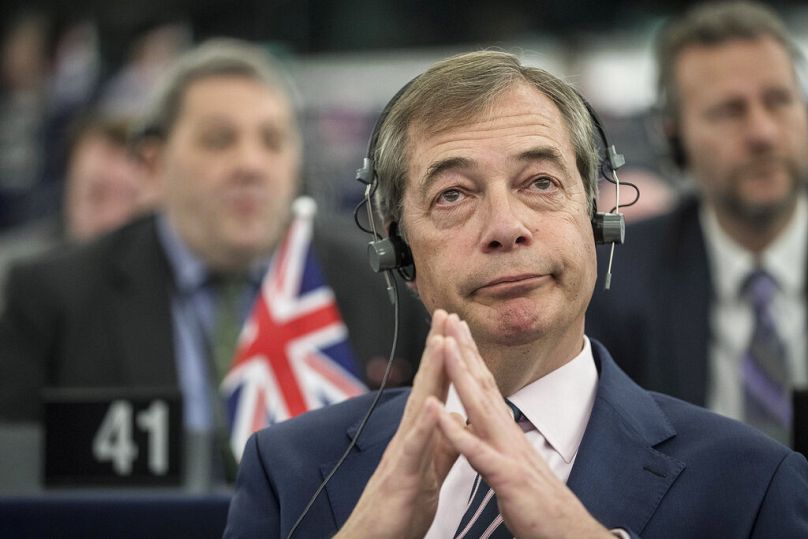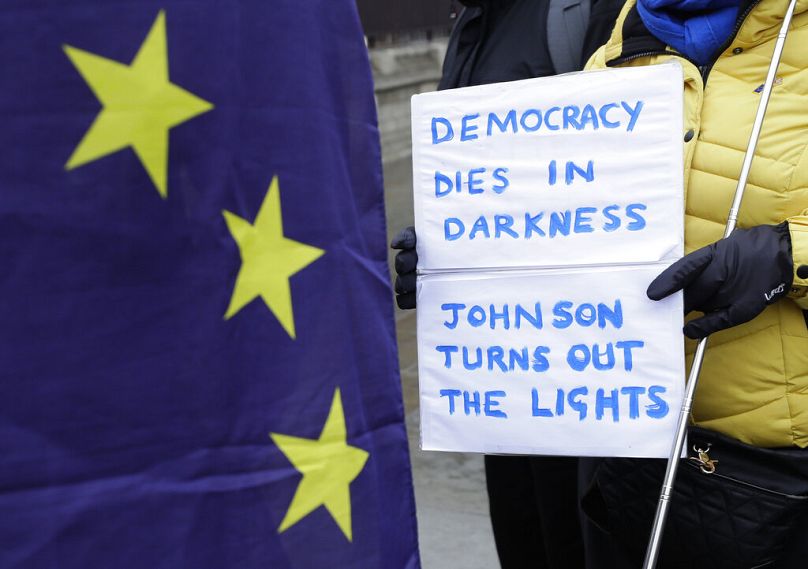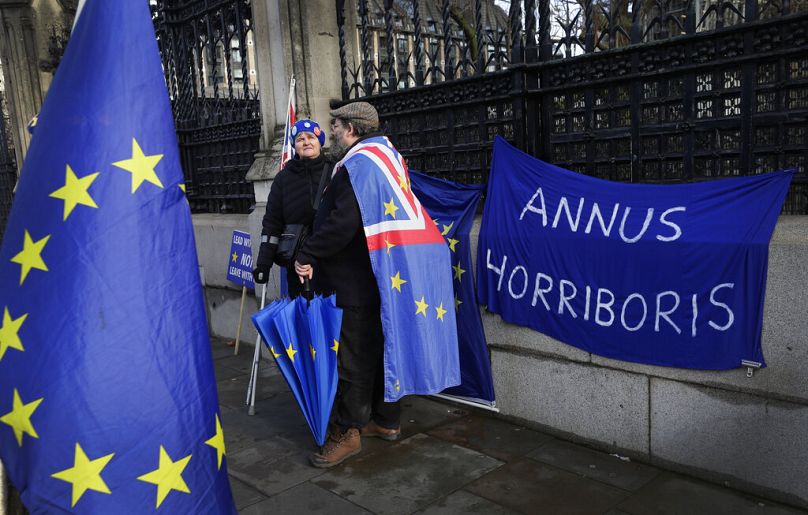An 11-month transition period ensures that cross-border travel, personal rights and immigration remain unchanged until at least December 31.
What happens on Friday (January 31) when Britain officially leaves the European Union? Except for some parties organised by Brexit supporters, most people in the UK and Europe will see no difference at all.
 ADVERTISEMENT
ADVERTISEMENT
 ADVERTISEMENT
ADVERTISEMENT
But for political leaders and negotiators, February 1 starts the countdown clock on the tangible changes that Brexit will bring: new arrangements for Britain’s trade, customs, travel and regulation with the EU and the rest of the world.
Until then, an 11-month transition period ensures that everyday friction points and the biggest challenges of the Brexit project — cross-border travel, personal rights and immigration — remain unchanged until at least December 31.
“Virtually nothing will change for businesses or for the public,” the Dutch government says on its Brexit-readiness website.
Indeed, the end of Britain’s 47-year membership of the EU promises to be as understated as its beginning, on January 1, 1973.
Watch Darren McCaffrey talk to a legal expert on what really happens next in the player above, where he also hands over the union flag to Jack Parrock before he embarks on The Last Journey Before Brexit.
Brexit: What does change on January 31?
There’s no going back. From the early hours of Saturday, Britain cannot revoke Article 50 and it will not be a part of the EU unless if applies to join.
The Withdrawal Agreement, negotiated by Theresa May and renegotiated by Boris Johnson, becomes a binding treaty between the EU and Britain, enforceable with penalties.
Britain is no longer part of EU decision-making structures; ministers, including Prime Minister Johnson, will not attend EU summits unless invited, Britain’s 73 MEPs will no longer sit in the European Parliament, and its finance ministry must settle its ‘divorce bill’.
The parliamentary change could prove to be a source of mutual relief for officials in Brussels and Strasbourg and Brexit MEPs such as Nigel Farage, who memorably told EU President Herman van Rompuy — to his face — that he had “the charisma of a damp rag and the appearance of a low grade bank clerk.”
In the British government, the Department for Exiting the EU will cease to exist and will be replaced by a Task Force Europe unit, within the Cabinet Office, led by David Frost who will oversee negotiations for trade deals partnerships with the EU and others.
The UK organisational re-jig could be accompanied by a government reshuffle.
Planning will start for the future UK-Irish border in Northern Ireland — the infrastructure headache that caused so much political deadlock during 2018 and 2019.
Blue passports, burgundy passports
The validity of existing documents such as driving licenses will not change, but from January 31 a UK passport no longer makes you an EU citizen — even though EU travel benefits continue to apply during the transition period.
HM Passport Office has already started issuing new documents without the “European Union” wording. From early this year, it will also begin changing the colour of new passports from burgundy to blue. None of these cosmetic changes affects the validity of any passport or the ability of holders to travel within the EU during the transition period.
“All British passports issued from mid-2020 will be blue,” the government says.
Cross-border citizens and ‘settled status’
For three million EU citizens living in the UK and one million British citizens residing in the EU, a new deal protecting rights will come into force, replacing the rights guaranteed by EU membership.
The terms of the deal, and examples of how it will work in practice, are set out in the EU citizens' rights and Brexit section of the European Commission website.
During the transition period until December 31, the deal allows UK citizens to remain where they live and to continue receiving health care and pensions overseas.
It also permanently grants residence rights to EU citizens living in the UK. “The Withdrawal Agreement will make it very clear that, once granted to individual citizens, it will not be possible to withdraw the UK settled status from individual EU citizens,” it explains. UK legislation enacting these rights will prevail over any other legislation in order to ensure these rights are kept.
Brexit: What does not change on January 31?
Aside from the democratic and legal changes above, every other aspect of EU membership remains applicable to Britain during the transition period.
Until at least December 31, EU benefits and protections such as freedom of movement, mobile phone roaming price caps and use of the blue EU channels at border points remain in place.
There will be no changes at ferry ports such as Dover, or airports. Hiring a car in other EU countries will remain unchanged. Existing reciprocal healthcare benefits remain in place.
Until December 31, taking a holiday or doing business in the EU should remain exactly the same as now.
What happens after the transition period, on December 31, 2020?
The next chapter in the Brexit psychodrama will be attempts to reach deals on future relationships by the end of the 11-month transition period.
Some aspects of Britain’s post-Brexit future position are enshrined in the Withdrawal Agreement and will not change: the Irish border; EU citizens rights; and payment of the divorce bill. Whatever happens in this year’s negotiations, these areas are already dealt with.
Johnson has made clear he wants to reach a long-term deal with the EU as quickly as possible, but EU negotiators have warned that the deadline is unrealistic.
Some relatively minor but worrying issues have already been partially settled. For example, the 650,000 retired British citizens already living in European countries have been told their pensions will continue to be uprated alongside inflation in line with those issued in the UK. But there is no agreement yet on what will happen to those retiring to another EU country after the end of this year.
Some countries are also making early plans for dealing with post-transition border arrangements. For example, the Republic of Ireland has said British passport-holders will be able to use a combined EU+UK channel at its ports and airports from December 31 but the Netherlands has indicated that UK travellers will be treated as “third-country nationals” unless an EU-level deal agrees otherwise.
British drivers taking their car around the EU may also need permits after December 31, unless Johnson can include this in his deal.
Johnson will also have to safeguard the long-term future of more protections such as workplace rights, working time limits and equality laws, all of which are up for negotiation past December 31.
Are there parties or events marking Brexit on Friday, January 31?
Johnson is scheduled to make a televised address on Friday evening, stressing unity and the healing of divisions. As 11 p.m. (midnight CET) approaches, a countdown clock will be projected onto 10 Downing Street.
A political ding-dong has already occurred over Big Ben’s silence. The historic bell is currently closed off for maintenance and will not 'bong' over parliament at the moment Britain leaves the EU.
Undeterred, Brexit lobby group Leave Means Leave is planning a public party in Parliament Square and says it has a solution.
“We will play the sound of Big Ben chiming, you know that wonderful sound, loudly through our excellent speaker system,” said the group’s director and Brexit Party Chairman and MEP, Richard Tice. “I think it'll be a huge roar of excitement.”
At other events, Remainers plan to mourn Britain’s departure — including at one German theme pub in London that is organising a “Eurotrash Final Countdown commiseration drinks” where Ode To Joy will be played at 11 p.m. instead.
Tony Greaves, a pro-EU Liberal Democrat member of the House of Lords, said plans for flag-waving parties “to celebrate something which is only half the country … is completely wrong.”
“People are saying we want to bring the country together now after division. This is the last possible way to do it,” he said.
Britain’s entry into the European Community on January 1, 1973, was an equally ambiguous affair.
“Britain passed peacefully into Europe at midnight last night without any special celebrations,” The Guardian newspaper reported. “It was difficult to tell that anything of importance had occurred.”













